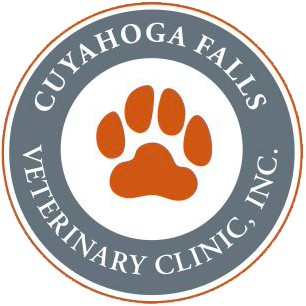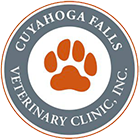From the Summit County Health Department…
to Begin in Summit County on August 26, 2013
Stow, Ohio – Summit County Public Health, in collaboration with the USDA Division of Wildlife Services, will participate in a multi-county rabies vaccine baiting operation for raccoons and skunks. This operation is in response to raccoons and skunks testing “positive” for rabies in Lake, Geauga and Cuyahoga Counties in northeast Ohio since 2004, breaching the Ohio/Pennsylvania rabies vaccine barrier. The baiting is scheduled for August 26th through September 13th, 2013 weather permitting, in the communities of:
- Boston Heights
- Hudson, north of Route 303
- Macedonia
- Northfield Center
- Northfield Village
- Reminderville
- Sagamore Hills
- Twinsburg City
- Twinsburg Township
- The Cuyahoga Valley National Recreation Area (CVNRA) will be baited by aircraft. The Ohio, Northern Pennsylvania, and West Virginia aerial rabies baiting operation will begin on September 2nd and September 6th. Communities that surround the park should be aware that pieces of bait may fall outside the park boundaries.
Two types of baits will be used. One type of bait is a brown square block with a strong odor of fishmeal, an ingredient in animal feed which raccoons are attracted to. A plastic packet inside the block contains a red liquid with the vaccine. The second type of bait to be used is a new blister pack, made attractive to wildlife by a sweet coating that includes vegetable-based fats, wax, icing sugar, vegetable oil, artificial marshmallow flavor, and dark-green food-grade dye. The vaccine has been successfully used in Canada to vaccinate raccoons, skunks and foxes against rabies. An animal is vaccinated by eating bait containing the vaccine. The animal will develop antibodies in two to three weeks. These antibodies will protect the animal if it is exposed to another infected animal. If enough raccoons and skunks are vaccinated, the disease will be stopped.
The bait is not harmful to people, pets or livestock. It is not possible to get rabies from the vaccine. Since the vaccine contains vaccinia virus, people with eczema and immuno-suppressed conditions may be prone to a local infection if the red liquid portion of the bait gets into a wound or abrasion.
People who touch the bait should wear gloves or use a paper towel or plastic bag then use soap and water to wash any skin area exposed to the vaccine.
If bait is found near homes, leave it alone if it is unbroken and in an area where pet or child contact is not likely. If the bait is out in the open or where contact by pets or children is possible, put on gloves or use a paper towel or plastic bag and toss it into deeper cover. The bait should not be touched by people less than 18 years of age, pregnant, or immuno-suppressed.
Because additional baits may have been dropped nearby, check the area for more. Any other bait can be removed and placed where they are more likely to be found by a raccoon, not children or pets.
This vaccine is approved only for use in wildlife and is intended for wild animals. A veterinarian, in accordance with state and local regulations, should vaccinate your pets. Pet vaccination is essential to protect your pet against rabies.
Everyone can help by keeping their pets inside or on leashes during the baiting time and about five days afterwards. This will help prevent pets from getting the baits and it gives wildlife a chance to eat the baits. Also, keep garbage cans tightly closed. Open trash attracts wild or stray animals. Feed your pets indoors. Pet food left outside attracts wildlife.
Important reminders:
- Be aware of what the bait looks like.
- Tell your children about the wildlife vaccination program and tell them to leave any bait alone.
- Keep dogs and cats inside or on leashes for several days after your area is baited. Most bait will be gone in about 3 days.
- Do not attempt to take bait away from your pet! That is the same as taking food away from an animal. You may be bitten.
- Baits may be picked up while wearing gloves, or with a plastic bag or towel.
- Do not handle partially eaten or damaged bait with bare hands.
- Damaged baits should be placed in a baggie and disposed of in normal trash.
- If you touch the bait or the red fluid inside the bait, thoroughly wash your hands or exposed skin with soap and water.
- Cover garbage cans and do not leave pet food outdoors.
Call the Ohio Department of Health, Rabies Information Line (1-888-722-4371) to report any incidents or for further advice.
For additional information, contact Summit County Public Health Division of Environmental Health at 330-926-5600.

